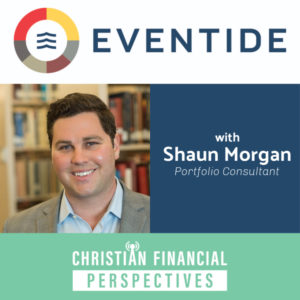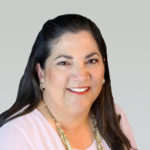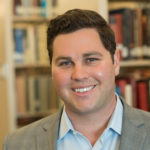Click below to listen to Episode 44 – Investing That Makes The World Rejoice
Subscribe: Apple Podcasts | Google Podcasts | Spotify | Amazon Music | Stitcher | RSS | More
Investing That Makes The World Rejoice

Learn about Eventide Mutual Funds – a company whose motto is “investing that makes the world rejoice”.

Today we are going to be talking about how, as advisors and as investors, we can do well while doing good. Isn’t that what we all want to do at the core of our investment philosophy? As investors, we want to support companies whose products and practices help make the world a better place.
Eventide Asset Management, LLC is a Boston-based registered investment adviser pursuing “investing that makes the world rejoice.” Founded in 2008, Eventide’s vision is to serve individuals, financial advisors, and institutions by providing investments that create compelling value for the global common good.
Eventide is the Adviser to the Eventide Mutual Funds and other advisory services. Eventide manages more than $3.7 billion in net assets. Joining Bob and Mary Jo is Shaun Morgan, Eventide’s Portfolio Consultant.
GUESTS: Shaun Morgan, Eventide Portfolio Consultant
HOSTED BY: Bob Barber, CWS®, CKA® and Mary Jo Lyons, CFP®, CKA®
Mentioned In This Episode
Want to ask a question about your specific situation? Schedule a complimentary 15 minute phone call.
EPISODE TRANSCRIPT
[INTRO]
BOB:
Welcome to Christian Financial Perspectives, a weekly program where we talk about ways to integrate your faith with your finances. This is Bob Barber.
MJ:
This is Mary Jo Lyons.
Bob:
Are you ready to learn the truth about money from a biblical perspective?
MJ:
Join us as we discuss what God’s Word says about money and integrating your faith with your finances… If it’s your first time listening, welcome to the program. If you’re a returning listener, welcome back.
[EPISODE]
Bob:
Today I’m going to start off with several scriptures instead of just one. The first one is Matthew 7:24-25. “Therefore, anyone who hears these words of mine and puts them in the practice is like a wise man who built his house on the rock. The rain came down, the streams rose and the winds blew and beat against that house, yet it did not fall because it had its foundation on the rock.” And then this last one is Galatians 6:9-10. “Let us not become weary in doing good, for at the proper time, we will reap a harvest if we do not give up. Therefore, as we have opportunity, let us do good to all people, especially to those who belong to the family of believers.”
Mary Jo:
Today we are going to be talking about how as advisors and as investors we can do well while doing good. Isn’t that what we all want to do at the core of our investment philosophy? As investors, we want to support companies whose products and practices help make the world better. Eventide Asset Management LLC is a Boston base registered investment advisor pursuing investing that makes the world rejoice. They were founded in 2008. Eventide’s vision is to serve individuals, financial advisors and institutions by providing investments that create compelling value for the global common good. Eventide is the advisor or the Eventide Mutual Funds and other advisory services. They manage more than 3.7 billion in net assets. So joining us today from Eventide is Shaun Morgan, Portfolio Consultants. Thanks for joining us today, Shaun. We’re happy to have you.
Bob:
Yeah, welcome, Shaun, and thank you for being a guest on our podcast. I remember just a couple of months ago, remember you came and spent a couple of days in our office helping us here at Christian Financial Advisors group.
Shaun:
Yeah, it was great. I loved being in the office, seeing what you guys had going on. I could really get a sense for how you do what you do and had a lot of respect for how y’all handled things down there. So thanks for having me on the podcast.
Bob:
Well, you know Shaun, I love the Eventide’s slogan, investing that makes the world rejoice. So can you tell our podcast listeners how y’all came up with that and how investors react to that message of investing that makes the world rejoice?
Shaun:
Sure. So that tagline, investing that makes the world rejoice, comes from scripture. It’s in proverbs 11:10, “When the righteous prosper, the city rejoices.” There’s an author named Amy Sherman that has an explanation of this verse in her book, Kingdom Calling. And she describes this word, righteous, coming from the Hebrew word, tsaddigim. And most scholars agree that this means something along the lines of the righteous people that are seeking the common good. So at Eventide, our goal is actually seek out companies that are seeking the common good.
And as a byproduct of this, we’re hoping that that makes the world rejoice. Just have this reaction of over the top excitement for things are. So that’s our goal with investing. The reaction that we’ve seen from investors as we explain this concept, it’s something that really everybody gravitates to. It’s something that they want to be a part of. And so explaining to financial advisors or investors on the end, whenever they understand the heart of, “This is why investing that makes the world rejoice. This is the idea behind it.” They kind of gather behind it also and it’s something that they want to be a part of.
Mary Jo:
I know it certainly gave me chills. And you know, Bob and I were at the Kingdom Advisors Conference earlier this year, and we were fortunate enough to hear Finny Kuruvilla, I hope I got his name right. He’s the Eventide CIO and managing partner. And we heard him speak about a couple of key points that we found compelling. The industry of Christian financial advice is here. So can you speak to that and how you see this space is changing before us?
Shaun:
Sure. So this is actually really exciting. You think of an industry that has been largely just unthought of as far as us as Christians that interact with this industry on a daily basis. For a while there, we just weren’t sure exactly how our faith should impact the way that, as advisors like you guys, should give financial advice, and then us on the asset management side, how does this actually play out? And so seeing this evolution really over the course of the last couple of decades, that started with maybe an initial conviction of people looking at their portfolios and saying, “Man, I don’t know if some of these companies that I own in my portfolio are companies that I actually want to profit off of.” So it’s a starting point there and that might have been the entry point for a lot of people.
We’ve seen so much progression over the last couple of decades to where financial advisors are asking the questions of what does it mean to truly be human? How has God created us to operate? And some of these principles that you’re able to find in the Bible that really offer a more holistic view for financial advisor’s clients to be able to say, “Hey, more than just seeking the most amount of money here on earth, us as Christians, we actually believe we have a higher purpose.” And so seeing that become more and more of the norm for Christian financial advisors to be able to integrate their faith into how they’re actually giving advice is really, really exciting. And you can see how much deeper this space has gotten. Some of the more complex issues and questions that people are asking, we are now able to look through that with a biblical lens to say, “This is what the Bible speaks to on this.” So it’s really exciting
Bob:
When it comes to looking at things through a biblical lens, I know that health care has been a major player as far as investing over the last 10, 15, 20 years. We know healthcare is one of the top industries now, especially as our population ages. So when it comes to portfolio opportunities for Eventide, there’s been some major opportunities I’ve seen presented and your health care fund has done extremely well. And where do y’all see the future of this? What the opportunities and the challenges in this sector as a faith-based fund manager for health care?
Shaun:
If you get in our office up in Boston and hear the excitement from our CIO, Finny, and specifically our biotech analyst Augustine, you’ll hear them speak of the technological innovations that are taking place in biotech meeting important human needs. And so whenever those two intersect, we just see tremendous opportunity. So we’re looking at specific disorders and diseases and seeing where companies have made tremendous amount of progress with technology over the course of the last couple of decades that are now laying the platform for companies to actually innovate in these areas.
I’ll give you one anecdotal example of a company that we have in our portfolio. It is a company that has been addressing a specific disorder, a deficiency in hormone development. Right now, and actually this was just last week, I was in a company meeting where our analyst was explaining this company to our group, our company, and he was explaining how really people with this disorder, this deficiency of hormone development, they’re just underdeveloped and there’s a lot of other health issues that come along with this disorder.
Well, right now there is one drug on the market that addresses this and you have to give this daily injection to children for all the way from toddler-hood or whenever they first discover that they have it all the way through puberty. And so it’s a very taxing every day injection. Imagine just giving a toddler and injection every day. So as our analyst is explaining this, we actually have somebody in our company raise his hand and say, “Yeah, my son has this. And yeah, yeah. And yeah, everything that you’re saying is true. And we’ve sat down and kind of looked at the type of life that this would lead to for our son. And we’re really thankful that this drug exists because it’s helping a lot, but it’s also very restrictive.”
So as Augustine is explaining this company that is now developing a slow release version of this drug that would allow it to be just injected once a week, that you could see the kind of light bulb and the excitement in this guy’s face of saying, “an, this is going to be a game changer for my family.” And I could just imagine the types of changes that this one company is going to make in lives all across our country is great. So as far as the excitement around investing in biotech and healthcare, that’s just one story of many that we’re looking at important human needs coming into contact with technological innovation to say this is actually creating value for society and all the stakeholders that are touching it. That’s really exciting for us.
Mary Jo:
Oh, that’s a wonderful story. Recently the Eventide Gilead Fund was named one of the 2019 best mutual funds by Investors Business Daily. So what’s unique about this fund and how have the fund managers accomplished this? Just as a disclaimer, just because we’re mentioning this fund, this is not a recommendation of any investments, should be only considered as part of a fully diversified portfolio.
Shaun:
So this is something that really drew me into Eventide is their process. So a term that I like to use, or two terms that I like to use whenever I’m explaining our process is thin data and thick data. We have in the financial industry really gravitated towards here recently the proliferation of this thin data. And this is data that’s kind of available to everybody. It’s quantitative data, data that you would find in spreadsheets that everyone has access to. And we’ve actually gotten really good as an industry of parsing up this data, reorganizing it to really develop good lens to examine different aspects of companies. And at Eventide, we have a lot of that thin data.
But we also rely heavily on our ability to gather what I call thick data. And this is more intangible data, data that you get from hearing the tone of voice from a manager on a call, or sitting in the room at a conference as a new technology is being explained and feeling the weight of the room and how they’re reacting to it. Those are aspects of thick data, and being in Boston, so specifically for healthcare and biotech, we have access to a lot of that thick data to where our team is intricately involved in what is happening in the biotech universe up in Boston. So I would say that a lot of our process involving deeper research than just what’s available to everybody, we do a lot of that research and we have access to all that thin data, but we also overlay that with a lot of thick data that we have.
Mary Jo:
Oh, that’s interesting. We hear so much about data these days and how it just kind of runs everything we do, but I’d never heard it referred to quite like that.
Bob:
Mary Jo is, as I was listening to that, I was thinking, “Is that kind of the old gut instinct that we’ve heard about all these years, whether this thing is right or wrong?” It kind of sounded like that to me a little bit.
Mary Jo:
Well, they’re seeing how the human element actually impacts all the data points. That’s interesting.
Shaun:
And to be clear, we are not anti-thin data. Okay. If I were sitting here next to my analysts, they would definitely jump in and correct me and say, “Oh no, we look at a lot of that. But it’s the addition of the thick data that I think really distinguishes us.
Mary Jo:
Sure. So Eventide was founded in 2008. How has the faith-based investing changed over these last 11 years? Obviously that’s one way.
Shaun:
So as I mentioned earlier, I believe for a lot of people in this space, it started out with the conviction of looking at their portfolios and saying, “Hey, there’s companies within my portfolio that I don’t think I would directly invest in, that I would look at it and say, ‘Actually, I want to earn profits off of what this company is doing.'” I think we started there and then you can see the progression in how different firms have taken different approaches. There’s a number of firms that have taken the advocacy route, where they’ll look in their portfolio and if they come across a company that one aspect of that company they would like to change, well they’ll start engaging with that company and entering into dialogue to see if they can help that company along in changing it. So that’s called advocacy and that’s one progression we’ve seen in the space.
Eventide takes an approach of looking at companies holistically on the front end and saying, “We actually believe good investments are companies that are treating all of their stakeholders well.” So we’ll look at the product or service that they’re providing for society saying, “Do we agree with that?” And then we’ll see how they’re executing it. How are they treating their customers, their employees, their suppliers, their host communities, the environment and society more broadly? We’ll look at all those stakeholders and say, “Companies that are engaging with all these stakeholders respectfully and adding value to all the stakeholders, we believe those are good investments.” So you can see just kind of the evolution take place to where something that started out pretty simple has now become just as deep and complex as any other part of the industry. It’s great to see that there’s a lot of thoughtfulness in this space.
Bob:
And I’ve noticed, Shaun, that faith-based investing or BRI, because I’ve been in it for so long, it’s a definite niche. And I remember when Robin John, your CEO, actually came to our office here in New Braunfels in the beginning days of Eventide and it was just him and Finny. And I see what a difference, a huge difference it is today. So I wonder what kind of resistance has Eventide met along the way from an industry that seems so secular in nature?
Shaun:
I would say anytime that you’re leading with values in general, or something other than profit, in the asset management business, people all of the sudden believe that you’re at odds with making a profit. And if whenever we lead and say, “Our number one priority is this investing that makes the world rejoice, we’re looking to make the world a better place.” There are some times that that raises the flag in people’s mind to think that, “Oh, instead of profit you would like to see good things happen.” And we actually believe those two can go together. That we believe that companies that are doing good, that have conviction to treat all of their stakeholders well, we believe that they actually have a better chance in the future to be profitable and to prosper as businesses. So I’d say that that would be one of the biggest headwinds that we face is the initial reaction that people have. That those two concepts, doing what is right and doing what is smart are at odds. That’s one of the things that we overcome.
Mary Jo:
So are there any specifics in this values-based niche that have come as a surprise?
Shaun:
I would say the amount that what you guys have termed as this secular mindset, or maybe people that are not Christians, the science and the research has now started proving some of these biblical principles that we’ve been abiding by for forever. So we would originally say that the love your neighbor approach to investing is a good way to invest. So businesses that are treating those around them well is a good thing for business. Well, now there’s tons of research that comes out around how delighting customers is one of the best indicators for future success for business. And the same thing with employees, that if you look at companies that really invest in their employees, those companies really outperform their competition. So I’d say a surprise, and maybe a surprise is the wrong word because it shouldn’t be surprising, but in the way that God ordered the world and the way that we view it as Christians, that eventually those principles come to play out in the broader society that’s looking at businesses and how to invest. So it’s really cool to see some research coming out and supporting what we’ve been saying for awhile.
Bob:
So what success stories can you tell us that has motivated companies to do the right thing when it comes to Christian values?
Shaun:
I’d say playing off of that, without going into specific companies, you’ll see new management or new executives come into a company with a vision for reorganizing how they’re going to be treating employees. So maybe a company that has historically had high turnover in their employees, that they just can’t keep employees on board because they don’t treat them well, their schedules are sporadic, they’re not paying them very well. And a new executive team comes on, takes over the company and says, “Actually, we’re going to invest more in our employees.” So something that might be counterintuitive to say, “We’re going to spend more money and more resources here internally.”
You’ve seen a number of those success stories play out to where that ends up actually really benefiting a business longterm because they’re having to spend less time training new people because they’re keeping their same people on board. Those employees are more motivated to seek out new ways to help the company prosper. So I believe that’s a good way that you can see how this has played out in the industry where people are figuring out that “Hey, doing good to your stakeholders actually ends up being a pretty good thing to do for your business.”
Mary Jo:
So looking forward, what are some of the best ideas or best thinking that Eventide sees on the horizon? Or maybe the biggest challenges?
Shaun:
Because we take a thematic view to investing. So I’d say a lot of our best ideas are in those themes where we’re looking broadly and saying, “What are some of these themes that we’re looking at?” So whether that be home improvement, or healthy foods, or finding treatments for rare and orphan diseases, a lot of those things that are important human needs, we’re finding companies that are addressing those. We actually believe that those are some of our best opportunities.
Some of the challenges as, once again, kind of back to the themes, it actually takes a deep knowledge of examining some of these themes and developing a conviction around whether or not we believe that this theme is going to be adding value to society or extracting value from. So some of those themes actually take, it’s a little bit challenging to get to the depths of them and look at the consequences of, “Hey, if this theme or to play out and some of these companies were to take off, would that be good for society?” And those are some of the challenges that we address.
Bob:
So I have a question about those themes, but first I want to say in an interview on your website, Finny talks about how they created Eventide to open up the space in investment management where real discernment takes place around ownership and the common good and make a way to invest in companies that create value. So you’ve shared some of the success stories that it’s provided. So what are some of the investment themes that did not make the cut and why?
Shaun:
So we really tried to take a look at the themes and see what would make them successful. And probably just broadly speaking, any theme that predicates its success upon addiction, or extracting value from its customers and end users isn’t going to make the cut. And so you can take that to many different industries. But if that’s the main investment thesis behind success of a company is that, “People are addicted to this and we can prey off of people’s weaknesses to drive a profit.” Those are some of the themes that we would just avoid investing in altogether.
Mary Jo:
Eventide is an investment firm that’s proven that you don’t have to have a split between ethics and performance. So when it comes to ethics versus economics, what are some of the trends your team sees?
Shaun:
I would reiterate kind of what I’ve been saying in different questions throughout our conversation here. And we’re seeing good things come from companies that are addressing important human needs. So if you look at the progression of our society and how businesses have really shaped us, so a lot of the opportunities that we see around us are shaped by these businesses that have created different products or services that we now use. So in looking at how that lines up with that concept of addressing important human needs, how that lines up with economic success, a lot of those businesses end up being very profitable and valuable themselves if they’re addressing a need that actually is providing a good product or service for society. That’s where those two are not at odds. Economics and ethics do not have to be at odds. In fact, we actually believe that they’re closely correlated, both in positive and negative.
Bob:
You know, Shaun, there’s a lot today on the environment. It seems everywhere we turn, we see a new story about plastics and you look on TV and they’ll show you these islands of plastic in our oceans. So we’ve been thinking about values-based investing and making our world a better place. Do you have examples of companies that Eventide is found that’s making a positive difference in this area?
Shaun:
Absolutely. So actually at this retreat last week that I was at with the company, one of our analysts, Andy, who covers this space, was telling me about a company that they were invested in and that really deals with waste management in general. So he was explaining how a lot of the problems in this particular sector or this industry is finding appropriate individuals, keeping them on board, and training them, everywhere from truck drivers all the way down the chain. And this company has really taken a stance of hiring and training high-quality individuals. And what they’ve been doing is they’ve actually been buying up some of these other smaller companies that are doing the same thing and just reorganizing them to make them more efficient. So it’s a great success story around our framework of treating all of your stakeholders well to address an important human need. And this particular thing is how do we manage a lot of the waste that’s being produced by us and organizing it and a efficient and responsible manner? So that’s one company in particular that we’re using to address that need.
Mary Jo:
Definitely a passion of mine. So I’m glad to hear that. So Shaun as a firm, how are you helping financial advisors embrace this concept that investors can do well by doing good?
Shaun:
So for me as I’m meeting with financial advisors, the first thing that I try to establish is just reframing how people see investing. That we have to agree on the fact that as investors, we are owners in the companies that we’re invested in, even if we’re separated by a financial advisor and an asset manager that’s managing a mutual fund, that entire chain actually connects end investors to their companies. And we have to agree on the fact that we’re owners in these companies as investors.
And so once that concept is established and we understand that, then we can take the next step and ask the question, “Well, what kind of companies do we want to own?” And whenever you actually have that sense of responsibility of, “What kind of company do I want to own in my portfolio? What are the practices of the types of companies that I would do? What are the goals of these companies that I want to own?” That’s where you can really see a light go off in a lot of adviser’s minds and say, “Man, we actually, we have a huge responsibility here.” And it’s kind of exciting to think about investing in that way, bringing it back to the original purpose of investing.
Bob:
So Shaun, we want to thank you for being on Christian Financial Perspectives today and taking time out to tell us about the Eventide funds and would you like to share any last thoughts for our listeners before we end the podcast today?
Shaun:
Sure. So guess going off that last question, I would challenge listeners, whether it be financial advisors or investors themselves, to see investing through this lens of investing as ownership. And then ask yourself the question, “What types of companies do I want to own?” So that’d be my final thought as we go off today.
Bob:
So my final thought would be if you want to invest that makes the world rejoice, give us a call. If you’d like to learn more about values-based investing, or what we call biblically responsible investing, you can do well by doing good. Our phone number is 830-609-6986, or you can visit us on the web at www.CISWealth.com. Thanks again, Shaun, for being on the podcast with us today.
Shaun:
Thanks Bob. Thanks, Mary Jo.
[CONCLUSION]
You’re listening to Christian Financial Perspectives. Join us next week as we explore what God’s word says about money. Don’t forget, you can sign up for our free newsletter on ciswealht.com or give us a call at 877-71-TRUTH. That’s 877-718-7884. To make sure that you don’t miss any of our podcasts regarding the truth about money, make sure to subscribe to Christian Financial Perspectives at christianfinancialpodcast.com for free. If there are any specific topics you would like to hear more about, we would love to hear from you.
That’s all for now, until next week!
[DISCLOSURES]
Shaun Morgan and Eventide are not affiliated with Christian Financial Advisors. Comments from today’s show are for informational purposes only and not to be considered investment advice or recommendations to buy or sell any company that may have been mentioned or discussed. The opinions expressed are solely those of the hosts, Bob Barber and Mary Jo Lyons. Bob and Mary Jo do not provide tax advice and encourage you to seek guidance from a tax professional. Investment advisory services offered through Christian Investment Advisors Inc. DBA Christian Financial Advisors, a registered investment advisor.











